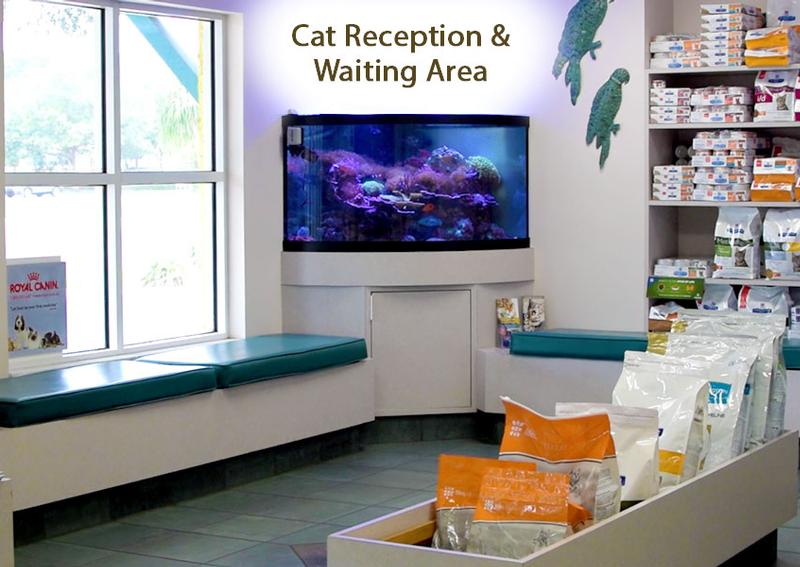Heartworm Prevention For Cats
Video: "Heartworm Disease" (3:00)—Dr. Scribano talks about how pets get heartworms, their effects, and how we can help prevent them.
Featured Quote - "The oral once-a-month prevention methods are good, but they're only good if you give it every single month and most of us are human, not superhuman."
Video Transcript
Hi, I'm Dr. Scribano from Northeast Animal Hospital. Today, we're going to review some things about heartworm disease.
Dr. Scribano, how do our dogs and cats get heartworms?
Heartworms are transmitted through a mosquito bite. Even if I took blood out of an infected animal and injected it into another animal, they won't get heartworms. It has to go through the mosquito. The products that we sell have to be in their bloodstream, so that when a mosquito feeds and deposits larvae that they won't make it to be an adult.
How do heartworms affect our pets?
Heartworms accumulate in the heart and the large vessels causing coughing and exercise intolerance. The problem is that those symptoms that you will see are far into the disease and it affects the large organs as well.
How do I know which product is the best to prevent heartworms?
That's a great question, especially now. We are using more of the injectable form just from a compliance standpoint. The oral once-a-month prevention methods are good, but they're only good if you give it every single month and most of us are human, not superhuman. When we do the statistics - when we read about them - it’s not favorable. The last one I heard was that 93% of all dogs that are positive, the owners say, "Well yes, but they've been on a preventative." That kind of told me that they forgot when they forgot. Maybe six months ago you forgot to give it, or maybe he got right back on it, but it let them be open to the mosquito bite six months ago. The orals work right, but you have to give them every month and the animal has to keep it down. Sometimes they might have an upset stomach or something like that or you might find them under your sofa. There are all kinds of reasons, but the statistics don't lie.
In the other compliance studies I've seen, they say that we're successful somewhere around six or seven doses out of the entire year. I'm very much promoting the injectable form so that I know they have guaranteed protection.
Do I need to use prevention year-round?
Yes. Maybe in Canada or something of the Northern climates, the mosquitoes aren't out, and so you can go off prevention certain times of the year and they'll educate you on that. But here in Florida, absolutely, year-round, lifelong.
How often should my pet have a heartworm test?
We test dogs annually and we do that through their annual blood work. The heartworm test is included when we do annual blood work. Not only do we get the benefit of an internal exam, but we can let you know if they are positive for heartworms. In the cat, it is not as significant because we can't treat heartworms in the cat anyway.
Heartworms are parasites that can grow to be one foot long and live inside the heart, arteries, and lungs. While heartworms find dogs to be the more hospitable host, they can also live inside cats, mainly during the younger stages of the heartworm life cycle. Most heartworms in cats do not survive into adulthood, and infected cats typically have fewer than six worms. However, even one or two immature worms can make a cat very sick.
Cause and Symptoms of Heartworms in Cats
The culprit in heartworm spread and infection is the mosquito. Heartworm larvae in an infected cat circulate through the bloodstream. A mosquito bites an infected animal and ingests its blood, along with the heartworm larvae. The mosquito then bites a healthy cat, and the larvae make their way into the cat's bloodstream through the wound.
Symptoms of cat heartworm disease are much like symptoms of other illnesses, or cats may show no symptoms at all before they collapse and die from heartworm infection. If symptoms do appear, coughing and rapid breathing are common. Cats may also suffer the loss of appetite, weight loss, and vomiting.
- Rapid or labored breathing
- Coughing
- Vomiting (not necessarily from eating)
- Fatigue
- Loss of appetite
- Loss of weight
Heartworms can cause severe organ damage that leads to heart failure and lung disease. In cats, heartworm disease more often involves the lungs. Smaller, immature worms can enter the lungs and cause Heartworm Associated Respiratory Disease, which is severe lung damage.
Treatment and Prevention of Cat Heartworms
Both outdoor and indoor cats are susceptible to heartworm disease since mosquitoes proliferate outside and can enter the home. About 33% of all infected cats are indoor cats. Unfortunately, no approved medication kills adult heartworms in cats. Current medications to remove heartworms are not suitable for felines, and heartworm preventatives only target worms that are still in the larval stages.
Further, immature heartworms can cause death if cat heartworm prevention is not administered under the care of a veterinarian. This is because young worms in the bloodstream can suddenly die from the medication and trigger heart failure, respiratory failure, and other complications. So never start your cat on heartworm prevention without a complete feline exam by your veterinarian.
Early detection and full protection are the only ways to keep cats free of heartworm disease. Heartworm prevention should be provided for your cat, along with regular heartworm tests by your pet’s doctor, to ensure any current or future infections are kept at bay. Talk to your veterinarian about the best testing and prevention schedule for your cat.

